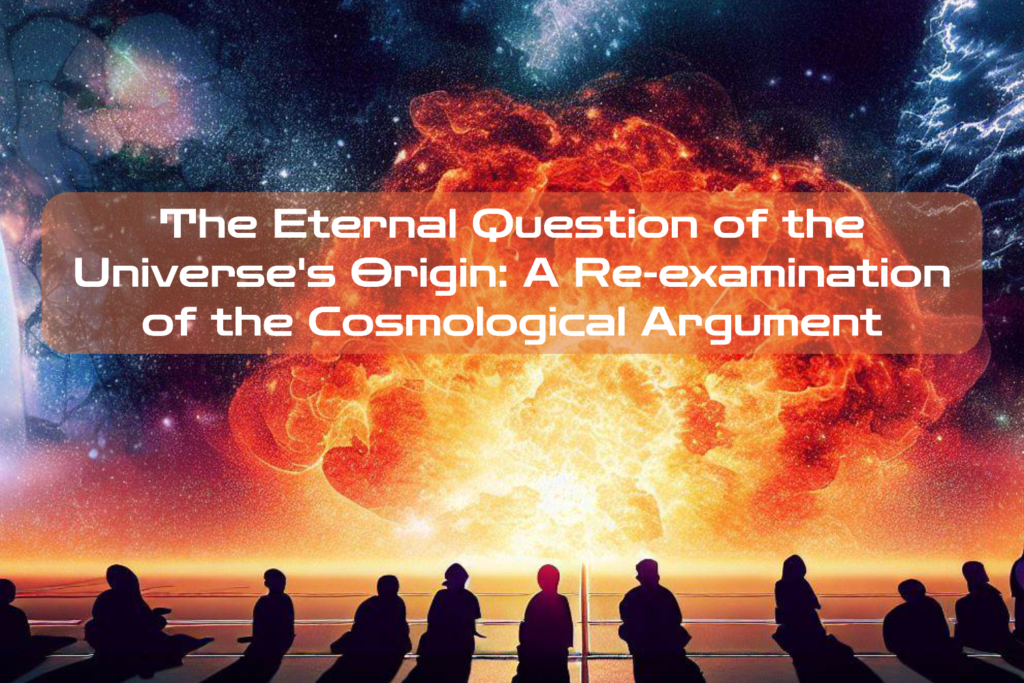What is the Cosmological Argument?
The cosmological argument is a philosophical proof that attempts to explain the origin of the universe. At its core, it posits that everything in existence must have a cause or reason for its existence and applies this logic to the universe as a whole.
In other words, it argues that there must be something that caused the universe to come into being, rather than it simply existing for no reason at all.
For centuries, this argument has been debated and refined by philosophers and theologians alike, seeking to reconcile religious beliefs with scientific evidence.
Its significance lies in its ability to provide an explanation for one of humanity’s most fundamental questions: why are we here? By searching for the cause of the universe’s existence, we are attempting to understand our place within it and our purpose as sentient beings.
A Debated Dilemma
Despite its long history and ongoing relevance today, there is still much debate surrounding the cosmological argument. Some argue that it relies on circular reasoning – if everything must have a cause, then what caused God? Others posit that an infinite regress of causes is possible – why do we need to stop at one ultimate cause?
Additionally, in recent years, some physicists have argued that traditional views on causality may not apply when considering the origins of the universe. This has led some to explore alternative explanations such as multiverse theory or spontaneous creation.
Ultimately, though, whether or not one believes that the universe has a cause has profound implications for their worldview. It forces us to confront life’s biggest questions head-on – what came before us and what will come after?
The Big Bang Theory: Where It All Began
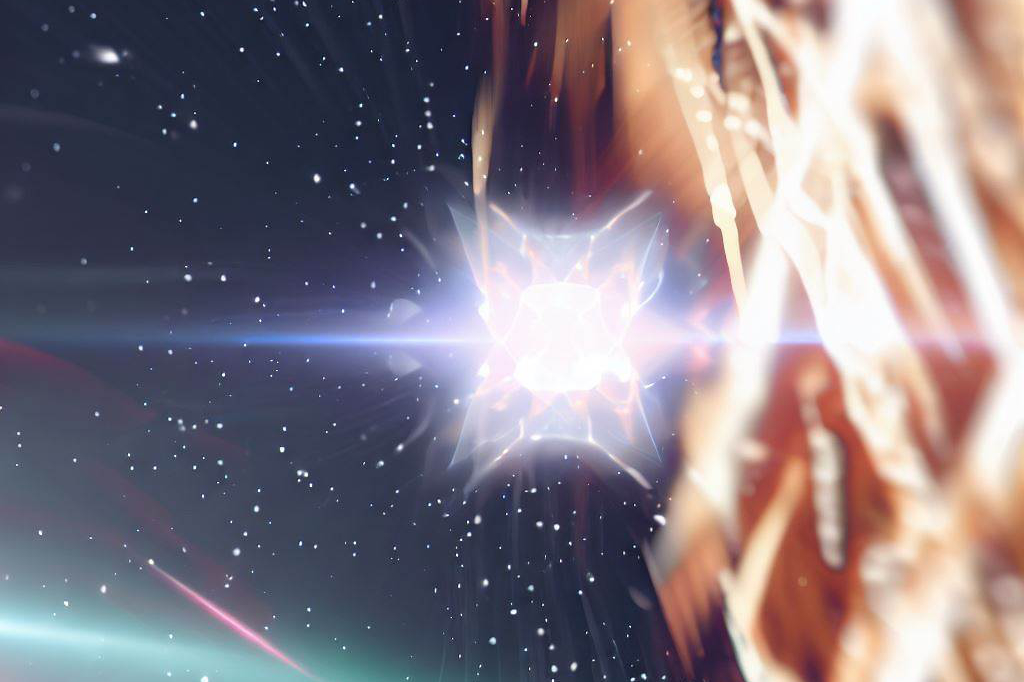
The Big Bang Theory is the most widely accepted scientific explanation for the origin of the universe. It posits that the universe began as a singularity, an infinitely dense point that exploded and expanded rapidly, eventually cooling and forming matter.
This theory has profound implications for the cosmological argument, as it presents a potential cause for the universe’s existence.
One of the key implications of the Big Bang Theory for cosmology is that it suggests a beginning to time itself.
If time, space, and matter all originated from this singular event, then there was no “before” in which anything existed.
This poses a significant challenge to traditional understandings of causality – if there was no “before” in which to cause the universe’s existence, how can we know if it had a cause at all?
Despite these challenges, there is substantial evidence supporting the Big Bang Theory.
One such piece of evidence is cosmic microwave background radiation (CMB).
CMB is radiation leftover from the early stages of the universe’s expansion and can be detected almost uniformly across space. Its existence supports predictions made by Big Bang theorists about what we should expect to observe if their theory were true.
The Implications: A Cause for Existence?
So what does all this mean for our understanding of causality and whether or not there is a cause for existence? The answer isn’t clear-cut.
On the one hand, if we accept that time began with the Big Bang and that causality operates within time as we know it, then it seems logical to conclude that something caused this phenomenon.
On the other hand, some argue that suggesting causality without reference to time leads us down a slippery slope towards infinite regression – what caused whatever caused whatever caused… ad infinitum.
Despite these difficulties in conceptualizing causality outside of temporal frameworks, many still find themselves convinced by the Big Bang Theory as evidence of a cause for the universe’s existence.
Additionally, alternative explanations (such as multiverse theory or spontaneous creation) have yet to provide compelling evidence and pose their own philosophical challenges. All in all, while the origins of the universe may remain shrouded in mystery, the Big Bang Theory offers intriguing insights into our understanding of causality and existence itself.
Critiques of the Cosmological Argument
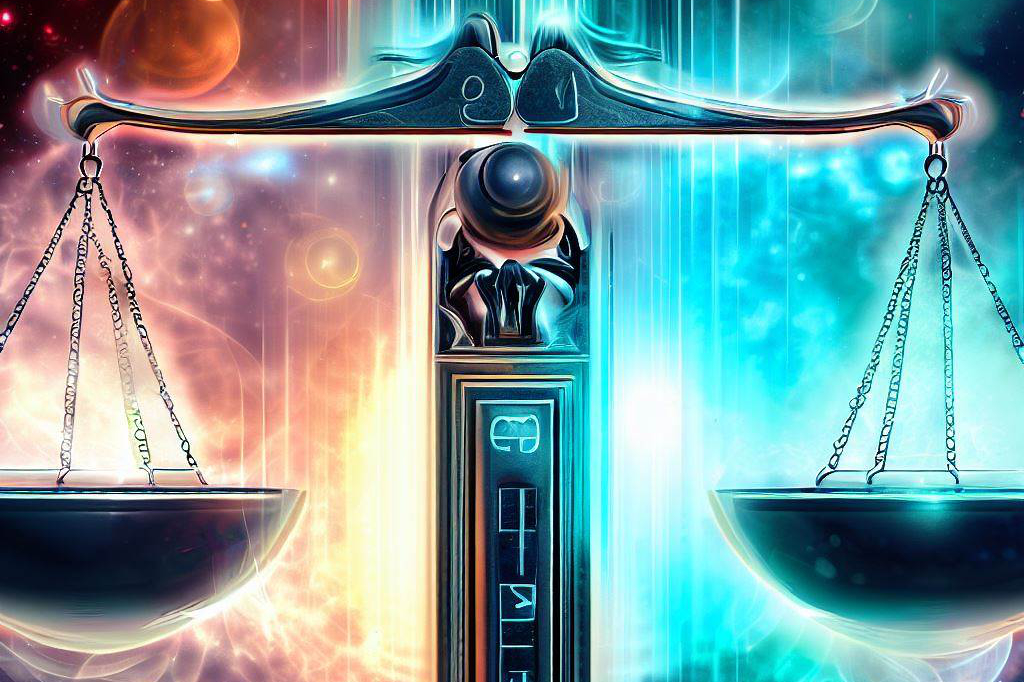
The Problem of Infinite Regress
One of the most common objections to the cosmological argument is the problem of infinite regress.
This is the idea that if everything has a cause, then what caused that cause, and so on, leading to an infinite chain of causes. The question then becomes: what caused the first cause?
If we posit a God as that first cause, then we must ask: what caused God?
Proponents of the cosmological argument respond to this critique in a few different ways.
One response is to argue that there must be a necessary being – one that is not contingent upon anything else and does not require a cause for its existence. This necessary being can be identified as God.
Another response is to propose that there is an end to the chain of causation. This end could be identified as either God or simply an uncaused event or entity.
The Problem of Circular Reasoning
Another critique of the cosmological argument is that it relies on circular reasoning.
The argument goes like this: everything has a cause; therefore, there must have been an initial uncaused cause, and this uncaused cause must have been God.
The circular reasoning comes in because proponents assume at the outset that everything has a cause and then use this assumption as evidence for their conclusion.
One way proponents respond to this critique is by arguing that they are not assuming everything has a cause but rather using reason and observation to come to this conclusion.
They point out that it seems impossible for something to come from nothing, and it is thus logical to conclude that everything has a cause.
Another response is for proponents to concede some circularity but argue it’s not problematic since all arguments contain some degree of circularity – including those against causality – due in part because we cannot fully understand or describe reality without relying on some basic assumptions.
Other Critiques
There are other critiques of the cosmological argument beyond infinite regress and circular reasoning.
Some argue that the existence of the universe does not necessarily require a cause, or that there are alternative explanations for the existence of the universe.
Others point out that even if we accept the premise that everything has a cause, it doesn’t necessarily follow that God is that cause.
Proponents of the cosmological argument have responded to these critiques as well, but their responses vary depending on which objection they’re addressing.
Ultimately, whether or not someone finds the cosmological argument convincing comes down to how they evaluate each premise and how much weight they give to each critique.
Modern Developments in Physics

The Quantum World: A New Perspective on Causality
Quantum mechanics has revolutionized our understanding of the universe and brought about fundamental changes to our notions of causality.
In the world of quantum mechanics, events can occur without an apparent cause or an observable effect.
This means that traditional views on causality, which rely on deterministic models, may not be sufficient to explain the origins of the universe.
One example of the challenges posed by quantum mechanics is found in Heisenberg’s uncertainty principle, which states that it is impossible to precisely measure both the position and momentum of a particle at the same time.
This implies that there is a fundamental limit to what we can know about physical systems, challenging traditional beliefs about causation and determinism.
The implications for cosmology are profound: if we cannot determine with certainty all aspects of a system, then how can we claim with certainty that there was a specific cause for its existence?
Theories Beyond General Relativity
Recent developments in physics have also led to new theories beyond general relativity that challenge traditional notions of causation. These theories suggest that space and time are not absolutes but rather emergent phenomena arising from more fundamental structures such as strings or loops.
One such theory is loop quantum gravity, which describes space-time as a network made up of discrete units called loops. According to this theory, there was no initial moment at which space-time began; rather, it has always existed in some form or another as a result of these underlying structures.
The Multiverse Hypothesis
One possibility suggested by modern physics is that our universe could be just one among many others in a multiverse.
The idea proposes that there are numerous parallel universes existing alongside each other, separated by vast distances or dimensions beyond human comprehension.
The implications for causality in the context of the multiverse hypothesis are intriguing. If there are infinite possible universes, each with its own set of initial conditions in which different events occur, it is difficult to determine with any certainty that there is a specific cause for our universe’s existence.
The challenge for cosmologists and physicists alike is to grapple with these new theories and explore their implications for our understanding of the cosmos.
The traditional view on causality may no longer be sufficient to explain the origins of the universe, and we may need to adopt new ways of thinking about causation if we hope to make sense of these developments in modern physics.
Alternative Explanations
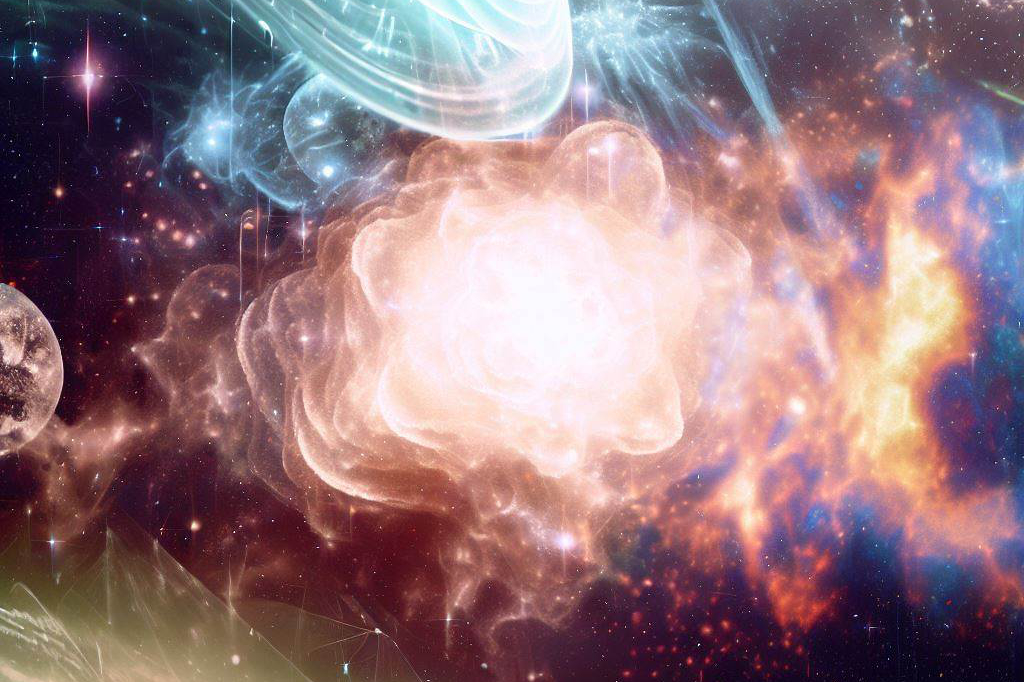
Multiverse Theory: Could There Be More Than One Universe?
The idea of a multiverse – a hypothetical concept that suggests the existence of multiple universes – has been gaining traction in recent years.
Proponents of the multiverse theory argue that our universe is just one of many, each with its own unique set of physical laws and constants. Some versions of the theory even suggest that every possible universe exists simultaneously, creating an infinite number of parallel realities.
While there is no conclusive evidence to support the existence of a multiverse, there are some compelling arguments in its favor. For example, the fine-tuning problem – which asks why our universe’s physical constants seem so perfectly calibrated for life – could be explained by the fact that there are countless other universes out there with different constants.
Additionally, some interpretations of quantum mechanics suggest that multiple parallel universes could exist.
However, critics point out several flaws in the multiverse theory.
For one thing, it is difficult to test or confirm experimentally since we can only observe our own universe. Furthermore, even if multiple universes do exist, it doesn’t necessarily mean they were all created by chance rather than by a conscious being or force.
Spontaneous Creation: Did The Universe Just Appear Out Of Nothing?
Another alternative explanation for the origin of the universe is spontaneous creation or ‘ex nihilo’ creation – an idea popularized by physicist Lawrence Krauss in his book “A Universe from Nothing.”
This theory suggests that it’s possible for something to come from nothing without any external cause or agency. According to Krauss and others who advocate for this view, quantum fluctuations can create particles out of empty space without violating any fundamental laws of physics. These fluctuations could eventually lead to entire universes popping into existence spontaneously without any need for a creator or cause.
However, critics of the spontaneous creation theory argue that it is still subject to the same problems as the cosmological argument – namely, the question of what caused those quantum fluctuations in the first place?
Additionally, some philosophers have argued that the notion of ‘nothing’ is difficult to define and may not even be a coherent concept.
Evaluation of Alternative Explanations
Overall, while alternative explanations for the origin of the universe may offer intriguing possibilities, they also come with their own set of limitations and challenges. Whether we believe in a conscious creator or accept one of these alternative explanations will likely depend on our personal beliefs and values.
Ultimately, the question of whether or not there is a cause for the universe remains one of the most enduring and fascinating mysteries in all of philosophy and science.
Final Thoughts
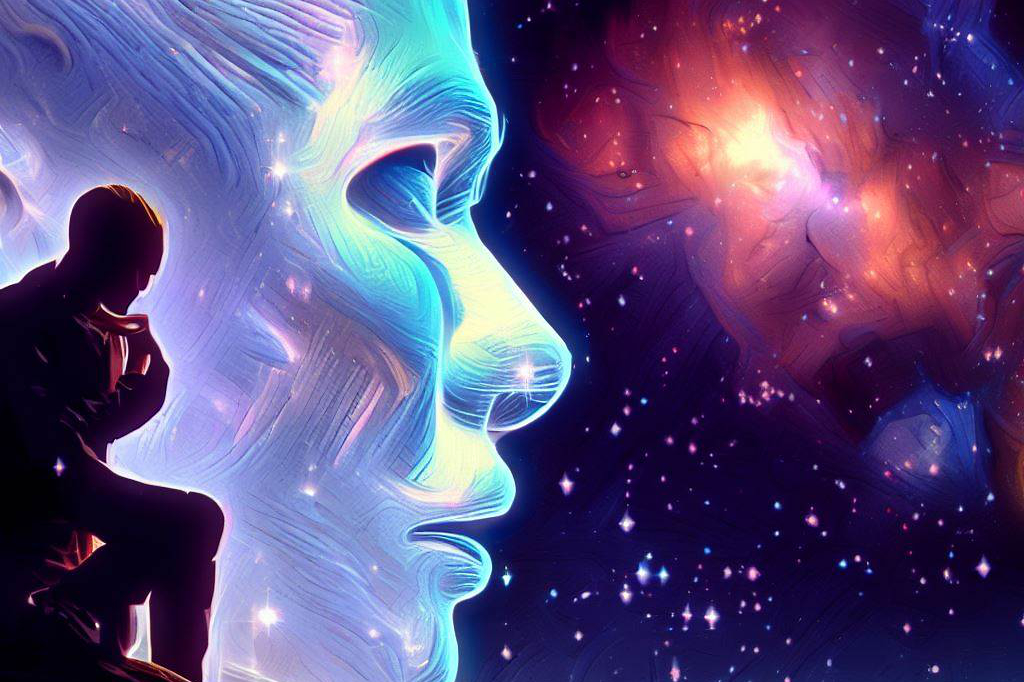
One key takeaway from this discussion is that while there may be strong evidence pointing towards a cause for the universe, we must remember that our understanding of causality may be limited by our current knowledge and perspectives. Additionally, alternative explanations such as multiverse theory or spontaneous creation cannot yet be definitively proven or disproven.
Ultimately, whether or not one believes in a cause for the universe may depend on personal beliefs and values. Some may find comfort in believing that there is a purpose behind existence, while others may find meaning in embracing uncertainty or randomness.
Regardless of individual beliefs, it is important to continue exploring these questions with an open mind and a willingness to learn from new discoveries and perspectives. By doing so, we can deepen our understanding of our place in the cosmos and perhaps even uncover new insights into our own existence.

C M, a seasoned editor, journalist, and consultant, is deeply fascinated by the convergence of technology, space, and the future of humanity.
With a particular interest in transhumanity, futurology, and the philosophical and ethical dimensions of these domains, C M serves as the lead contributor to SpaceSpotlight and TranscendSphere.
When not penning insightful articles on these rapidly evolving fields, C M indulges in their love for podcasts and books, proudly embracing their status as a ‘Happy Nerd Extraordinaire!’
